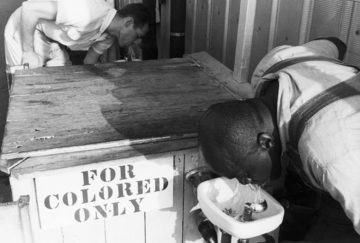 Charisse Burden-Stelly in Boston Review:
Charisse Burden-Stelly in Boston Review:
In the late 1940s, the Cold War was heating up. In the United States, anticommunism had reached a fever pitch at the same time that antiblack violence had forcefully re-emerged in the form of lynching and race riots. At this auspicious moment, Lincoln University historical sociologist Oliver Cromwell Cox published his 624-page tour de force, Caste, Class, and Race: A Study in Social Dynamics (1948). Cox’s book put class struggle, racial violence, and relentless political-class competition at the founding of the capitalist world-system in 1492, though it argued that these constitutive features had existed in nascent form since much earlier. Cox contended that economic exploitation was at the root of U.S. racial hierarchy. In particular, it was responsible for structuring relations among the white ruling class, the white masses, and Black people as a racialized class of workers.
Cox’s book refuted the “caste school” of race relations. For nearly a decade, Cox had challenged scholars who compared U.S. race relations to the caste system in India—caste being a religious-social structure that preceded the rise of capitalism. In a 1942 article, “The Modern Caste School of Race Relations,” Cox noted that, despite their claims to originality, researchers such as W. Lloyd Warner, Allison Davis, and John Dollard were simply recapitulating a caste hypothesis that had been “quite popular” in the latter half of the nineteenth century. Cox did not speculate why—in the context of the Great Depression, ascending fascism, and increased racial violence—the caste hypothesis had been “made fashionable” again. However, he noted that the resurgence of caste as a model for explaining the racial order in the United States separated race relations from class politics just when a racialized struggle over resources was intensifying.
More here.
